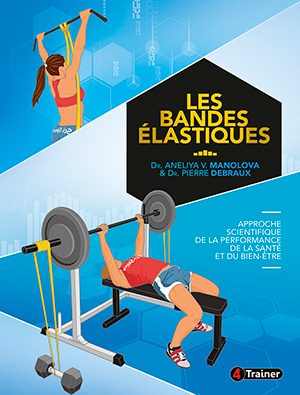
The popularity of BCAAs (branched-chain amino acids) rests mainly on the fact that they are said to stimulate muscle protein synthesis and reduce proteolysis, thus promulgating a positive net protein balance. But are they really necessary?

It has been suggested that humans have a finite potential in their ability to grow skeletal muscle. However, if this plateau does exist, are there other physiological factors, in addition to genetic predisposition, that put the brakes on our muscle gains?

In the world of fitness, it's not always easy to sort the truth from the falsehood. And creatine is a victim of its own success. From unjustified fears about its safety to misunderstandings about its effects, creatine is often demonized.

Creatine is mostly associated with enhanced athletic performance and muscle growth. However, recent scientific explorations have shed light on a different, but equally important, aspect of this well-known supplement: its impact on brain health.

Resistance training is particularly recommended for its health benefits. However, lack of time is the main reason given for not exercising. Is there a minimum dose that would still provide some benefits?

Considered a factor in longevity, muscle strength decreases with aging. The minimum recommended doses and relatively short longitudinal studies do not allow us to know the real evolution of strength over the course of a lifetime. The study of powerlifters provides more information.

The squat has always been considered the king of exercises for developing the muscles of the lower limbs, particularly the glutes. In recent years, however, the hip thrust seems to have taken its place. But is it justified?
We are happy to welcome you on the brand new english version of our educationnal website dedicated to sport and physical activity. Since 2011, our website was a french constant growing resource for experts and people passionate about learning sport sciences and aiming to stay up-to-date. You can find out what contain the sections of the website through the different presentations below.
Feel free to subscribe to our newsletter to receive a weekly summary of news from the site. You can also follow us on our Facebook page to stay in touch with us. Sci-Sport.com will evolve in the coming months. At first, an article will be published each week. With the time, this rate will increase. And this content will be constantly free and in an open access to all.
Enjoy your visit!
The Sci-Sport Team

The Elastic Band Resistance - A Scientific Approach to Performance, Health, and Fitness is the first book to explain the biomechanical and physiological principles that underlie elastic resistance and the value of this resistance in humans . At a time when sports equipment available to consumers, coaches and physical trainers are legion, the authors, both doctors in biomechanics and sports science, dispel misunderstandings and discard the misconceptions about elastic bands training. By combining theoretical explanations based on a hundred of scientific references and examples of practical applications, this book highlights the unsuspected qualities of resistance bands for all publics.
The Elastic Band Resistance - A Scientific Approach to Performance, Health, and Fitness addresses different aspects: sports performance to illustrate the potential gains in speed, strength and power, health to demonstrate interest in prevention and rehabilitation injury and fitness to explain the benefits on the musculoskeletal system of a workout with elastic bands for any public. A collection of illustrated exercises and training programs adapted to all are also available. As a guide, this book will explain many concepts while remaining accessible to larger numbers and creating a bridge between scientific knowledge and field applications.
Copyright © 2011-2024 - www.sci-sport.com - All rights reserved